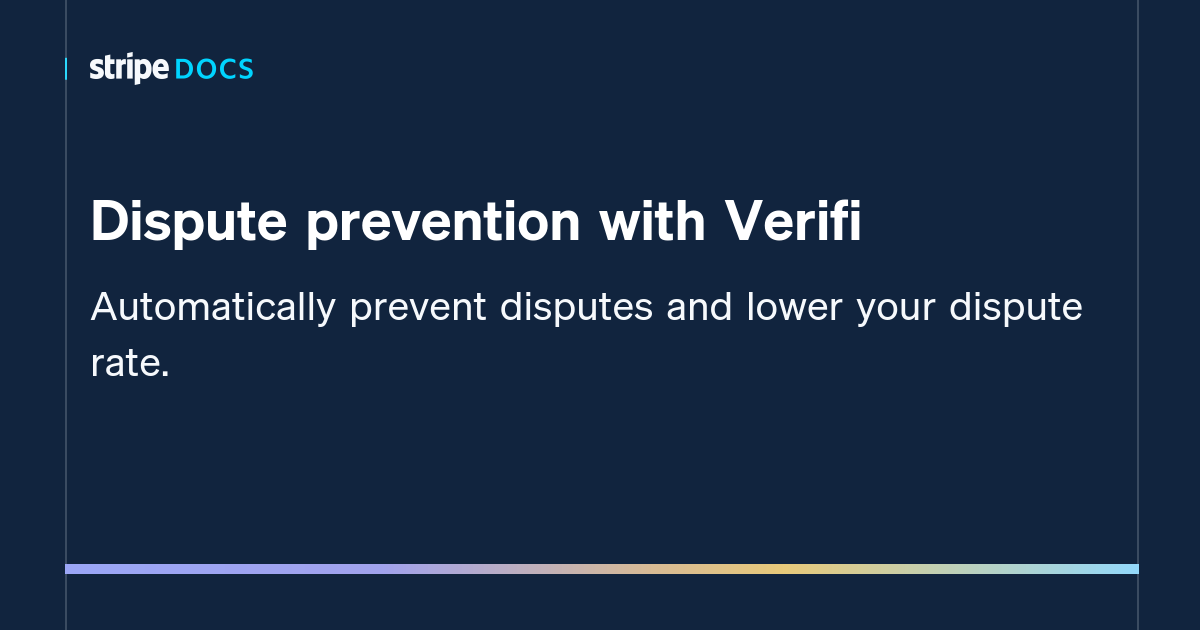
On my LinkedIn stream, I’ve been getting more and more alerts about malpractices at Stripe. That surprises me as they are the poster child of fintech, so I investigated and found that most of my feed was being filled by one Brad Harrington, a young self-employed entrepreneur who graduated from the University of Michigan in 2012.
I’m guessing he is making or taking payments with Stripe and fed up with them. Here are some of his series of accusations, which seem to focus mainly on the way in which Stripe treats merchants when customers seek chargebacks.
Many merchants are using tools like RDR (Rapid Dispute Resolution) to proactively resolve disputes before they become chargebacks. The idea is simple: reduce risk, improve outcomes, and avoid having disputes hit your processor record.
But here’s the problem: when you use these tools through Stripe, you’re feeding pre-chargeback data directly into the hands of the same company that underwrites your risk profile.
Stripe isn’t just your processor — they’re also your risk team, your judge, and your executioner. That means any alerts, even if resolved amicably, could potentially be used to flag your account as high risk or even lead to termination — before a chargeback ever hits …
But here’s the uncomfortable truth … when you use these [RDR] tools through Stripe, the data goes straight into their internal risk engine.
Stripe is reportedly banning merchants based on pre-dispute alert volume — not just confirmed chargebacks.
That means: you try to be proactive… and Stripe treats you like a threat.
He’s written a lot more about this issue, so it alerted me to investigate. Let’s start with explaining RDR a little bit more. According to Stripe:
RDR allows businesses to construct a ruleset to auto-refund incoming disputes on Visa transactions for a fee per dispute (for example, refund all potential fraud disputes under 10 USD).
Sounds good except, as Brad is raising, the issue is that you are a merchant and use RDR it is flagging a Stripe alert that you may be high risk and your processing is frozen. This gets interesting as there are several groups debating the issue. Here’s one on Reddit:
After reading through dozens of posts in this sub from the past few months, I'm noticing a super concerning pattern that I really want to avoid with my own business.
It seems like merchants enable Rapid Dispute Resolution (RDR) after Stripe recommends it in their dashboard, then within 24-72 hours their account gets flagged for "enhanced due diligence" and all funds get frozen for 90+ days with zero transparency or timeline. (even worse when they have disputes already)
This makes absolutely zero sense to me. Their risk algorithm apparently flags accounts that suddenly enable RDR as suspicious, which is completely counterintuitive since they're literally marketing the feature as a way to reduce risk!
Looking at the technical side, it appears RDR shifts liability in some cases, which might be why their system treats it as a red flag when newly enabled. But Stripe doesn't disclose this anywhere in their documentation.
In the discussion, some interesting replies like this one:
This can feel like a total catch-22: you’re trying to proactively reduce disputes, but you’re feeding risk data to the same entity that decides whether your account is “high risk.”
And they recommend using https://www.chargebackstop.com/ rather than Stripe’s RDR. Another user recommends using issuer based alerts instead, which are called Ethoca.
Anyway, the bottom-line appears to be that if you use Stripe’s RDR to try to avoid a convoluted chargeback process, then Stripe's policy is that you are alerting them to being a higher risk merchant and possible having your account locked, frozen or blocked.
Caveat Venditor (Merchant beware).
Chris M Skinner
Chris Skinner is best known as an independent commentator on the financial markets through his blog, TheFinanser.com, as author of the bestselling book Digital Bank, and Chair of the European networking forum the Financial Services Club. He has been voted one of the most influential people in banking by The Financial Brand (as well as one of the best blogs), a FinTech Titan (Next Bank), one of the Fintech Leaders you need to follow (City AM, Deluxe and Jax Finance), as well as one of the Top 40 most influential people in financial technology by the Wall Street Journal's Financial News. To learn more click here...

